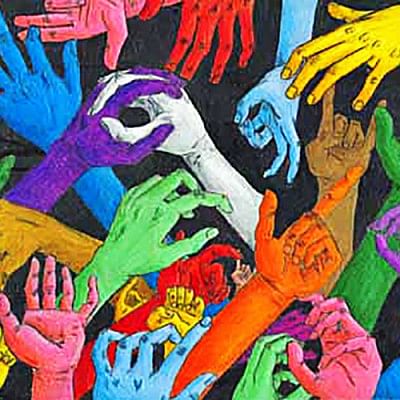Cosmopolitan Ethic in Action

In spite of Trump calling Bob Woodward, the author of the book Fear, a liar; in spite of a world where winners have boos raining on them instead of ovation, like in the case of Naomi Osaka, the winner of the Grand Slam final, who stood as a victim instead of a winner when she beat Serena Williams; in spite of a young man getting shot in Chicago for protesting against guns…the world is still sane, just because there are many others who don't follow the Trumpian Alternative Universe and who genuinely feel homes, offices, social circuits are dominated by diversities and co-existence and not disruptions.
Thus, from the early morning waking hours, we state, adapt and move on. In the middle of all this is: tolerance. That is being cosmopolitan.
I was recently reminded of the concept of "Cosmopolitan Ethic" by an event which was celebrating HE Aga Khan's diamond jubilee celebrations marking his completion of 60 years at the helm of the Ismaili community. The Aga Khan has been calling for cosmopolitan ethic in action to be rooted in a strong culture of "tolerance". This 81-year-old lives in France, is one of the 15 wealthiest royals in the world, worth USD 800 million according to Forbes and yes…most pleasantly he is a philanthropist.
Nothing is new except that which has been forgotten. Civilisation after civilisation has said the same things, coined the same philosophies and yet, once forgotten or swept under the carpet, we present the same concept in a new format. The concept of Cosmopolitan Ethic has also been around us for the longest time possible. It's just that we choose to forget what inconveniences us and when there's a conflict of interest.
Terence, the North African slave, who was taken to Rome in the second century AD wrote lovely plays. He had a notably firm grasp on human diversity while uttering "So many men, so many opinions!" And in his comedy, The Self Tormentor, he refers to the very basic of cosmopolitan ethics. He wrote: "I am human; nothing human is alien to me." Cosmopolitanism also dates back to the Cynics of the 4th century BC who first coined the expression: Citizen of the Cosmos.
Even if we turn to Islam, the concept of cosmopolitanism holds. Surah Nisa's 1st Ayat is enough for us to explain the basic philosophy: "O mankind, fear your Lord, who created you from one soul." In the 13th verse of Surah Hujarat, Allah says "O mankind We have created you male and female, and made you into nations and tribes, so that you may know one another…" (49:13). Similarly, in the 48th verse of Surah Maidah, the Quran reads "…To each among you have We prescribed a law and an open way. If Allah had so willed, He would have made you a single people…" (5:48). In reality, the Quran teaches one to tolerate differences and not to impose one's faith on others (2:256): "There shall be no compulsion in acceptance of the religion." Cosmopolitanism also has its modern roots in philosophy. Dating back to 1790, Kant's cosmopolitan theory is itself more nuanced than is usually spotted. Kant argues about the citizens of a state having an imperfect duty of civic patriotism and eventually defends the establishment of a voluntary league of states leading to a federation of republics based on the political autonomy of peoples. He argues that the citizens' cosmopolitan right and one moral principle should be the basis of all interactions between states and foreigners anywhere on earth.
However, diversity does not allow us to shape every belief in one model, one religion. Yet we learn from diversity, which ends up being a strength. How, though?
The basic answer can be derived from the cosmopolitan position of Anthony Appiah, the British-born Ghanaian-American philosopher and cultural theorist. To paraphrase Appiah, Cosmopolitan Ethic is to be able to value the other, to be able to live and co-exist with the diversities of the modern world is what is essentially ingrained in cosmopolitanism. Broadly speaking, cosmopolitan ethics is based on the principle that all human beings belong to a single community, where inclusive morality, shared economic interest and social relationship will positively impact cultural differences. Cosmopolitans also view all the people of the earth as many branches of a single family, of which the universe is a state. But cosmopolitans do not expect every person or every society to converge on a single mode of life or value system. Rather cosmopolitans are, in general, globalists, applaud human dignity across the nations and resist narrow nationalism.
If we, as cosmopolitans, are to critique existing communities and states and reject an exclusionary, divisive outlook in morality and politics that encompass the universe, let us also realistically remember that the current world is too conflicted to be united. Yet, let us not despair and while we weigh in this disappointment, let us all look hard for the truth and not give up our small spaces where we naturally believe that everyone matters.
As humans, let us not indulge in differences. Life is too short to be divisive; too brief to be belligerent. Thus, in this short life of ours, let us reject communitarianism and choose cosmopolitanism as an ethic to practise and to live by.
Dr Rubana Huq is the managing director of Mohammadi Group.





Comments